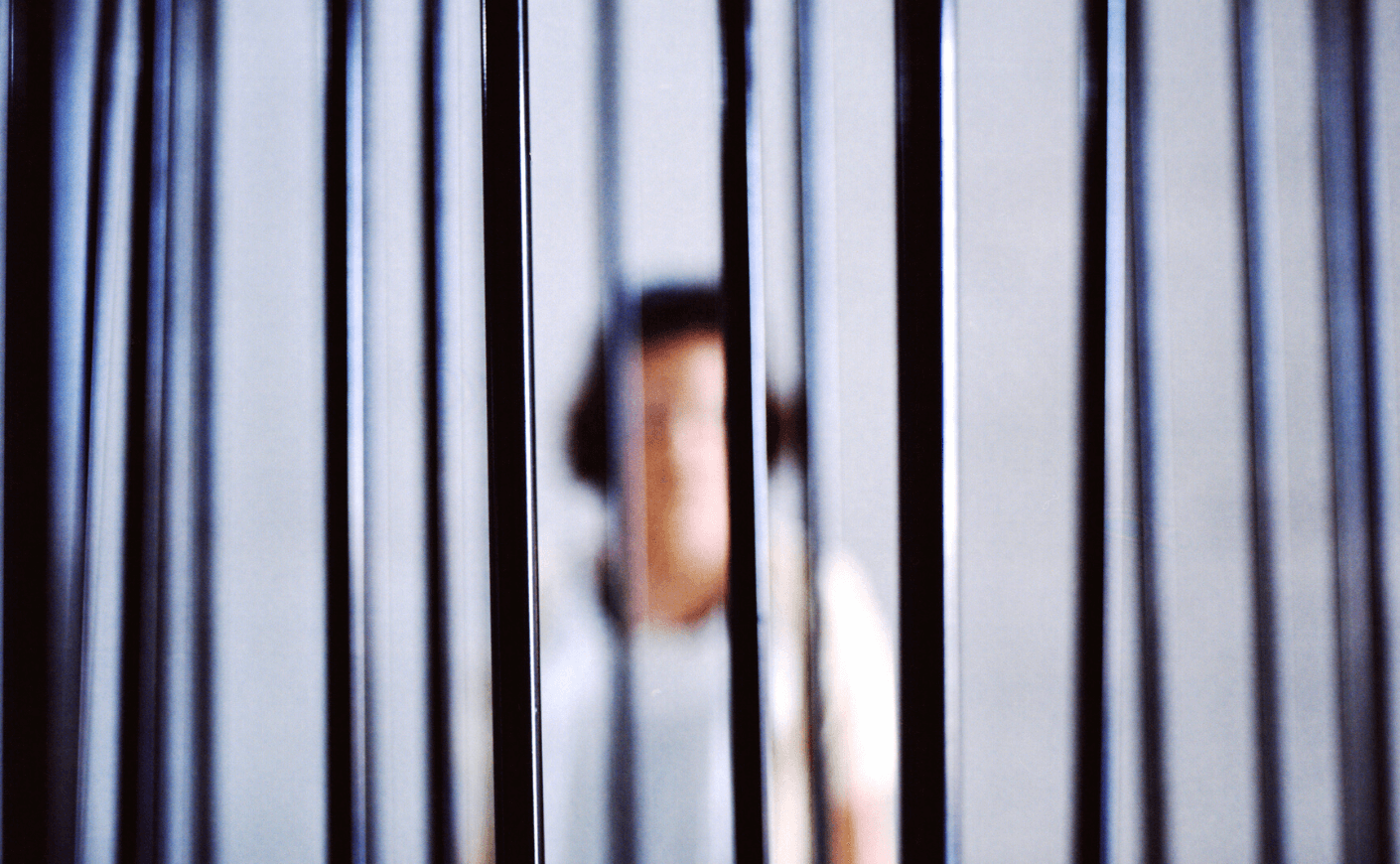Ex-prisoners who must find a job and home are especially vulnerable to abuse.
Every year, thousands of women in the United States lose their freedom. In 2019, there were seven times as many women incarcerated nationwide as there were four decades previously — rocketing from 26,378 in 1980 to 222,455 in 2019. Black women are 1.7 times more likely to be behind bars than white women, while the Latinx female incarceration rate is 1.3 times higher. Once the gates lock behind them, they’re indentured to a system designed for men.
Women are more likely to be convicted of drugs and property crimes than men, who are more commonly convicted of violent offenses. Women are more likely to have dependent kids, and to have earned less than their male counterparts before their convictions. While male convicts might adapt their prison clothes to denote gang affiliations, female inmates are more likely to adjust them to fit. But they get reprimanded just the same.
Orange Is the New Black aside, media and pop culture tell us incredibly little about women’s experiences in prison — and even less about their lives on the other side. What does reentry into society look like after you’ve been to jail? Can friends and family ever understand what you’ve been through — and how do you go about finding a new home and job, when the odds are stacked so steeply against you?
KCM spoke to Arizonian Leah Farrington, who served time in prison from 2018-2019, and now campaigns for reform alongside the ACLU. She told us some of the horrifying things she saw on the inside, what she’s learned since being released, and explained how experiences on the other side of incarceration can re-traumatize former convicts.

KCM: Tell me about yourself Leah: When did you serve time, and what are you up to now?
LEAH: I’m white, 44, and I have an amazing 22-year-old daughter. I was incarcerated for a first-time white-collar offense in 2018, and released in 2019. I started college at ASU out of prison, completed my associate’s degree in paralegal studies in May 2021, and I’ll graduate with my bachelor’s degree in justice studies in Dec 2022. I’m hoping to get my master’s in counseling after that — I want to help formerly incarcerated and incarcerated women deal with trauma.
How would you describe that transition from prison to the outside?
I like to talk about reentry as layers of an onion of freedom that you pull back. The first layer is just coming out of prison and trying to readjust to society. Then there’s dealing with probation and having to go through all the steps they want you to, then more, then more. I don’t think you ever quit peeling layers back.
Can you give an example of one of those layers?
Part of that was getting my civil and gun rights restored in January. That just means that I can vote again, I can sign petitions, I can sit on a jury. Getting my gun rights restored wasn’t a big deal to me — I’ve never owned a gun! — but voting was.
It seems odd that you had to petition the court to get your civil rights restored…
In some states your rights are automatically restored, especially for a non-violent, first-time offender, but not in Arizona. I was lucky enough to get an attorney to go through the process for me, but it’s all very skewed towards privilege — you have to understand the complexity of the process and be able to afford an attorney. It’s a lengthy process, and very intense.
Do those obstacles increase the chances that someone will re-offend?
You have no idea! The deck is stacked against you in so many ways. In Arizona, there are 46,000 laws that are collateral consequences to being a felon. That includes housing, employment, getting to see your children, the list goes on and on. So yes, the entire system sets you up to fail. I’m a fighter and I don’t want to give up, but there’s been more than one time since my release when I’ve thought heck with this. And if you have a violent offense, or you’re a sex offender you can quadruple that stack of cards against you.
While you were incarcerated, was anyone able to prepare you for what to expect when you left?
Everybody’s journey is entirely different and personalized, just like a crime. Two people can commit entirely the same crime, but experience the justice system in a totally different way. Race, gender, and privilege all play into that. No one prepares you for that judgment. And truthfully, when you’re in, all you want is your freedom. You’re not in the yard chatting with your girls going, “Man, the stigma we’re gonna face when we get out!” You’re just counting your days until the gate.
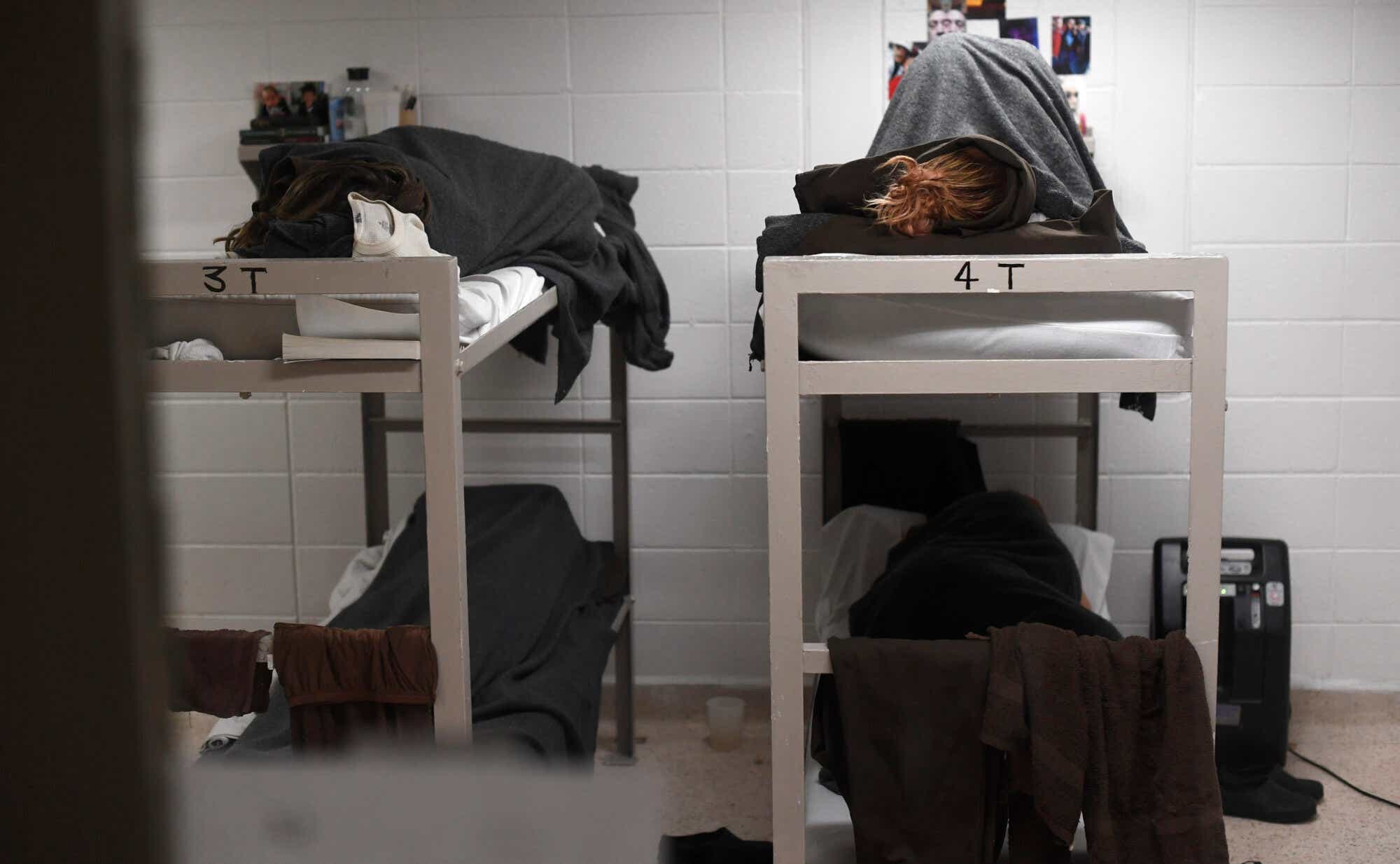
Do you stay in contact with anyone you went to prison with?
I met the most amazing women, some of my very best friends. You can call it trauma-bonding, whatever, but we’ve been through something that other people can’t relate to.
What does that first week on the outside look like?
It depends on how you’re released. Most people are released to parole, so it’s community supervision instead of incarcerated supervision. I was fully discharged to probation. The first thing the probation tells you is you’ve gotta get a job, but of course with a conviction, that’s gonna be really hard.
There’s also a lot of sensory stuff going on. You’re super smell-deprived, color-deprived, nutritionally deprived. People think you just get out and go eat and do whatever you want, but it’s not like that. You’re so emotionally traumatized. You’ve been through something so unimaginably horrific. My reentry coach said it’s an adjustment going in, and an adjustment coming out.
Tell me about your reentry coach?
Only one county in Arizona has a reentry program — The Yavapai Reentry Project. I will forever be grateful to them, and my coach and I are still buddies. They work really tightly with your probation officer. It’s pretty intensive, but the most amazing thing to have.
The adjustment to the outside kinda sounds like the bends, the condition when divers come up out of the water.
That first week, it’s like you have a raw open wound. Any time anyone looks at it, there’s a lot of shame and guilt. You’re trying to mend relationships with your spouse, your child. I lost a lot of friends because I went to prison. The biggest question was, What does my life look like now? I was able to come out to my home though, which again is showing my privilege. Not everyone has a home or people who love them to come back to.
What was your experience of reentry to employment?
It’s harder than heck! I have a job now, but I’m undervalued and underemployed for my skill set. I’m definitely underpaid. There are so many things to face if you’re a felon — so much wage theft, discrimination, sexual discrimination, sexual harassment.
In what way sexual harassment?
In my first job out of prison I was being harassed, but my employers knew I needed the job, and they knew I was on probation because my officer showed up to meet with them. I started taking a recorder to work so that when I did quit, I could show my probation officer that I had legitimate reasons to do so.
What’s the job hunt like?
A lot of rejection. I was offered job after job, but then once you disclose you’re a felon, everything’s rescinded. There’s a lot of questioning your self-worth. You stay in these menial jobs that are very low paid and have a very low skill set because looking for something else is so traumatic. My husband is so sweet, he said, “Why don’t they just offer you a probationary period?” But they just don’t want to have that conversation. Rent is rising, and even to live in the most despicable places, women are having to work two and three jobs. Again, it’s all stacking the odds against successful reentry.
How did your social circle react — could you have predicted who would be supportive or not?
One of the biggest things you fear in prison is being forgotten, and in this day and age, if you can’t just shoot a text you feel like you’re not remaining in contact with someone. There were friends who’d reach out to my daughter or my husband saying “We need to figure out how to write her a letter.” That’d always annoy my daughter, since she was like “You just write her, here’s her address.” But some would still never write.
People try to relate to you, when there’s just no way. I’ll get offended in conversations when people are talking about criminals, or use the word “inmate,” though I hate that word. It’s not that I’m special, it’s just that if you haven’t been through it, you just don’t know. Even in college classes, there’s this fine line — do I disclose everything? Is the professor gonna look at me differently now? Are my classmates?
How did your experience in prison inform your decision to study criminal justice?
I came out of prison mad as hell! I couldn’t believe what I saw in there, the sexual abuse I witnessed by guards and correction staff against female inmates. It was the most disturbing thing. I was on the outside work crew, so I left prison every day to go to work. I worked in the central office, and sexual harassment was rife, perpetuating the abuse that these women have been through their whole lives.
When I got out of prison I read The Slumber Party From Hell, by a woman called Sue Ellen Allen. I wrote to her and said, “I read your book, I love your power, and how do I get involved?” She sent me a link to an event by the ACLU called the Smart Justice Campaign. I went, and I loved it.
What’ve you been able to do since?
I’ve testified at the legislature, and we were able to get the Dignity For Incarcerated Women bill passed last year. It helps women get menstrual products regularly, forbids the shackling of pregnant women, and allows for incarcerated mothers to be with their child for 72 hours after birth, instead of just being ripped away. We got that passed, but the Arizona Department of Corrections still isn’t compliant with the law.
What I’ve learned through criminal justice reform is that we can work on minute pieces. People want large, broad reform, but we’re not gonna get there in Arizona. You eat an elephant one bite at a time, and anything is momentum forward.
What bites of the elephant are you working on now?
Right now, a male guard can strip a female inmate and say it’s because of “a security issue.” Arizona prisons are so under-staffed that they can call that an emergency in itself. We just want it codified that a male officer can only strip a female inmate in emergency circumstances.
Just sit with that for a moment. Let’s just say you’ve had some sort of sexual abuse or trauma in your life. In one of the most dehumanizing ways, you’re having to strip down in front of someone. Imagine that someone says something disparaging to you. Can you imagine how trauma-perpetuating that is?
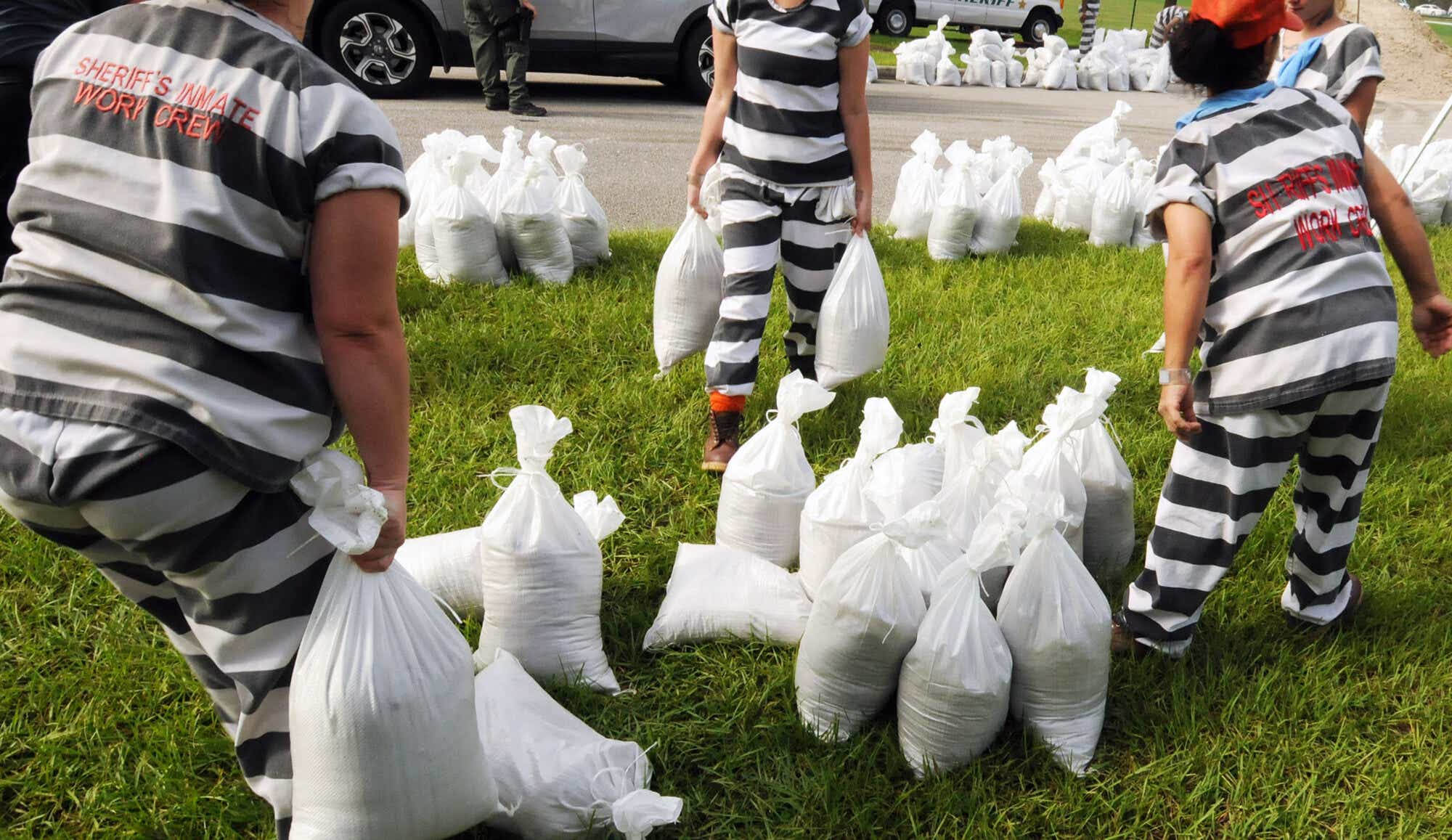
Did you ever see anyone resist being stripped?
No. We just knew it was part of the deal.
So out of 1300 women in your yard, so many times a week, you didn’t once see anyone say no?
No. Because you don’t want to get a ticket for not going to work. Outside work crew often underwent this process called “tossing your house” — they would strip our bunks, throw the bed out in the middle, and go through it all looking for contraband. You’re also tested for drugs more often. That means getting naked and sitting to pee in front of an officer.
When you speak to formerly incarcerated men, what are the differences in their experiences? Is there comparable sexual abuse?
There are so many differences. Men’s prison is very political. If you’re white you have to house with the whites. We never really had that: It was all-communal living. I’ve never talked to my male friends about the sexual aspect of things, but I know that their experience is insanely different.
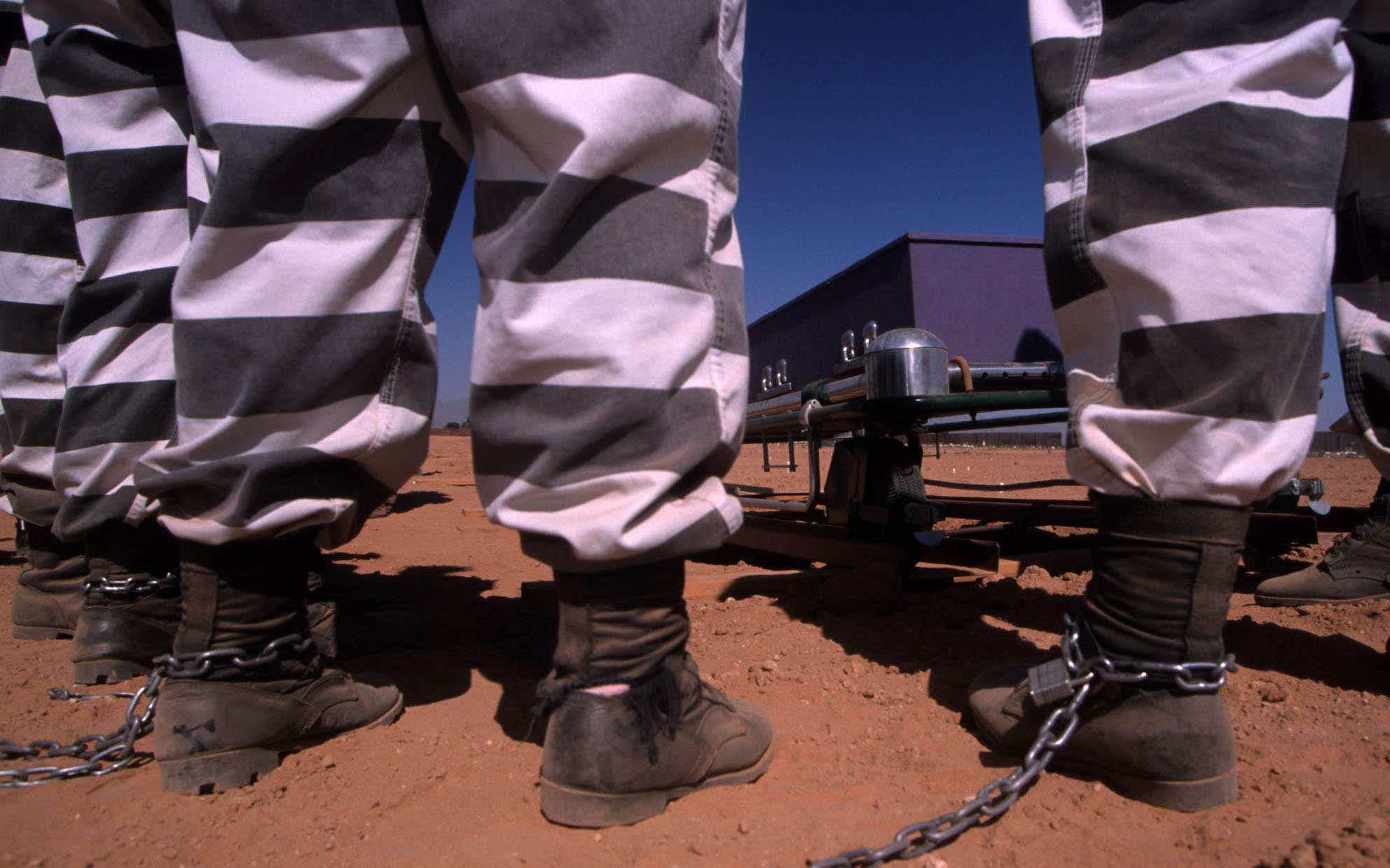
Tell me about the housing situation after prison.
I know a person who was released before me who has a dangerous narcotic violation. She cannot get housing, and she’s not even trying to get the apartment by herself. Her cousins are trying to rent it, but her name can’t even be on the lease. So she’d have to secretly live there.
So if she didn’t have cousins she could theoretically live, she’d be homeless?
Yup. And she’s trying to be super honest, so she paid $45 to do some kind of background check, and they came back and said no. We’re in a housing crisis. What are people expected to do? What would I have done if I didn’t have a home to come home to? You have to give probation your address, so they can check your house. I hear halfway houses are horrible, so that’s not a good option either.
I did time with a girl who lived in Scottsdale. She was trying to go back to live with her parents, but their Home Owner’s Association wouldn’t allow her to come back. Another friend of mine had the same issue coming up against the HOA. It’s very privileged, like, “We don’t want those people in our neighborhood.”
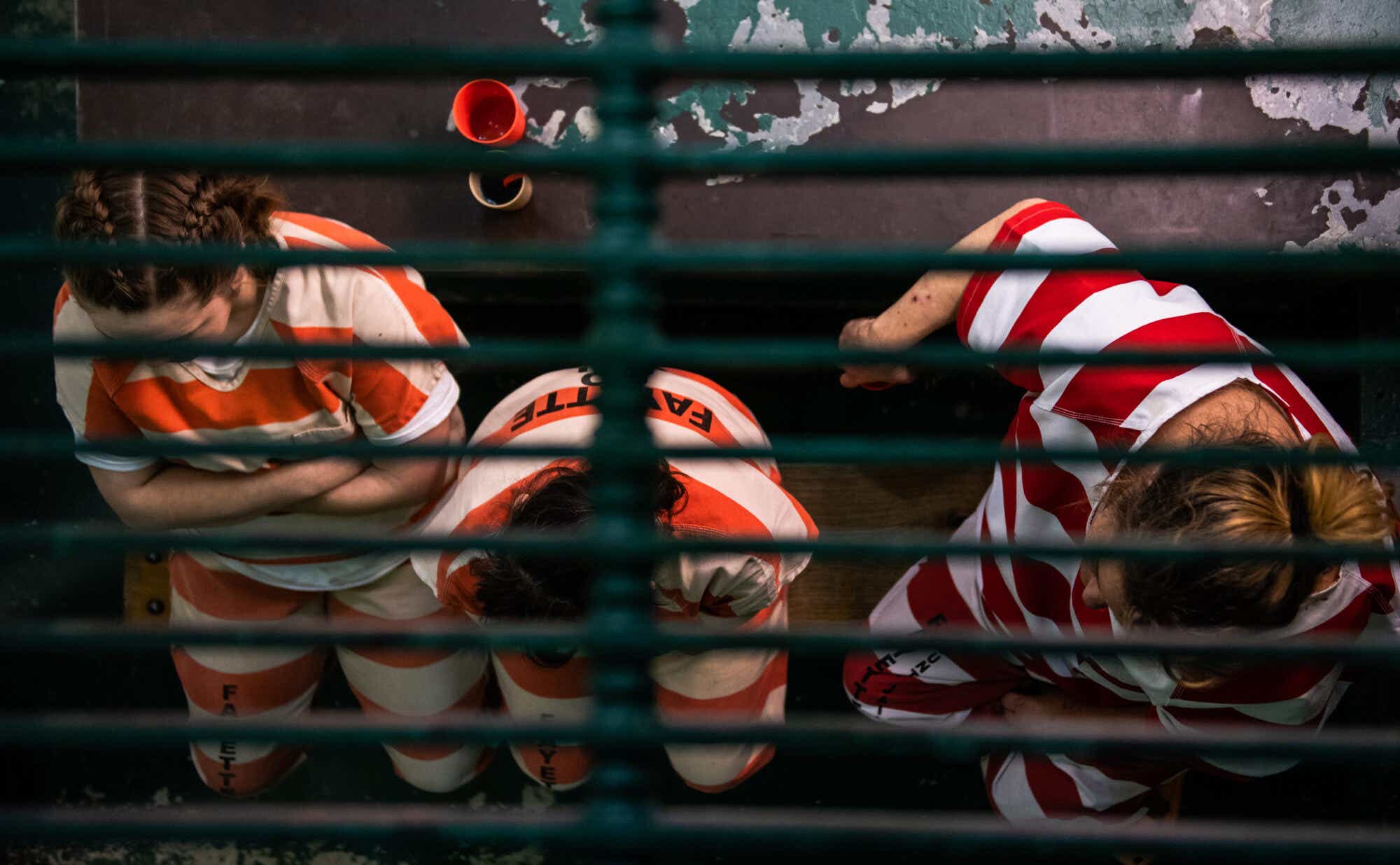
How else does sexism affect female felons?
I think we’re charged differently. In my opinion, women aren’t “allowed” to make a mistake. Look at Hillary Clinton — she had some emails, and she was completely vilified. Look at what women in the workplace already have to deal with daily, even without a felony conviction. We’re less valued than men, paid less, our ideas are not as valued, or men take credit for them. Add a felony conviction to that — now you’re “bad,” you’re oppressed, and you’re a woman, it just exacerbates everything women face in the workplace anyways.
And quite infantilizing as well, I imagine?
Yes, for sure. I was in a position of management before my conviction — at a pretty high level in government management. Now I sit on the bottom of the totem pole where I work.
I think that formerly incarcerated people are a pool of untapped talent. We’re gonna be loyal, we have something to prove, we’re gonna work harder than other people. We need the job, but also we’re really gonna want to show up and be there, on behalf of the other people that follow us.
This interview has been edited and condensed.








